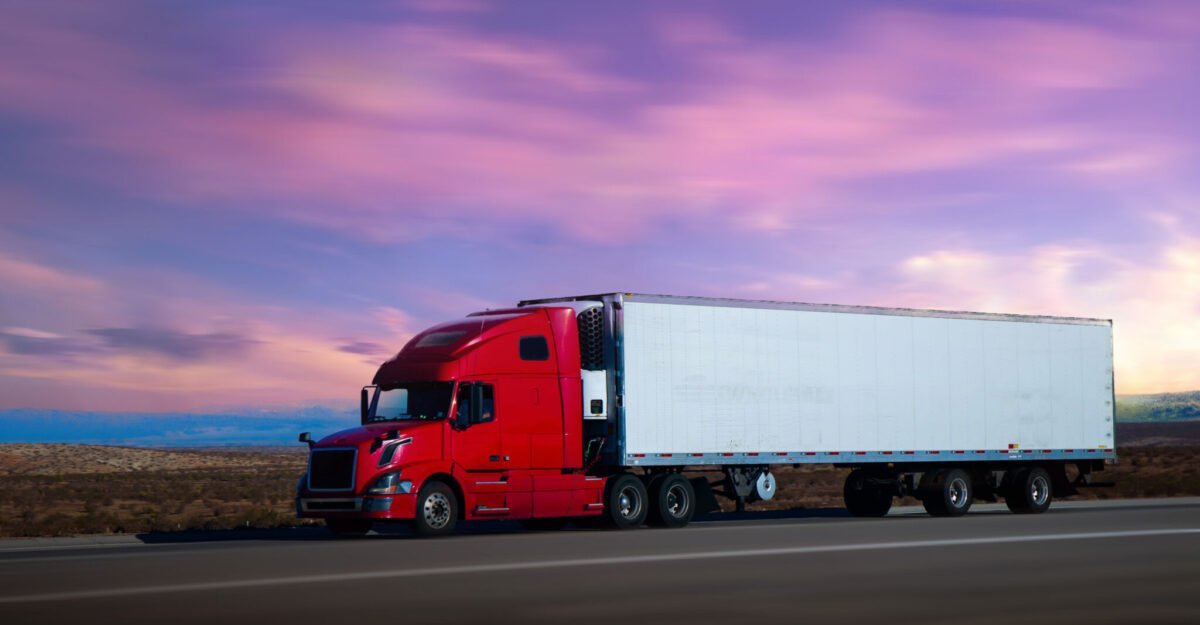Dry van transportation services provide secure, enclosed freight shipping across the USA for dry goods and general cargo. A professional dry van dispatching company ensures efficient load matching, route optimization, and real-time communication between carriers, drivers, and shippers—reducing downtime and maximizing profits.
Understanding Dry Van Transportation Services
Dry van transportation services are the backbone of the American freight and logistics industry. These services specialize in shipping non-perishable goods inside fully enclosed trailers—protecting cargo from weather conditions and theft. Whether moving consumer goods, electronics, or packaged food, dry vans are the most common and cost-effective freight solution in the USA.
Dry van trailers, typically forty-eight to fifty-three feet long, offer flexibility for shippers and drivers alike. They are ideal for full truckload (FTL) and less-than-truckload (LTL) shipments, ensuring safety and efficiency across long hauls. Businesses rely heavily on dry van dispatch teams to coordinate these operations, ensuring every mile counts.
The Importance of Professional Dry Van Dispatch
A dry van dispatching company acts as the communication hub between shippers and drivers. Dispatchers manage load assignments, routes, delivery schedules, and compliance with regulations. By leveraging technology, real-time tracking, and industry expertise, dispatchers keep freight moving efficiently.
Professional dry van load dispatching is crucial for maintaining consistent revenue and optimizing fleet utilization. Dispatchers use advanced load boards and relationships with brokers to secure the best-paying loads while minimizing deadhead miles. For carriers and owner-operators, this means better profitability and less time wasted searching for freight.
What Makes Dry Van Dispatching Different
While flatbed and refrigerated trucking have their own logistics needs, dry van dispatching focuses on maximizing trailer capacity and reducing empty runs. Dispatchers ensure that every load is compatible with trailer specifications and legal weight limits.
A reliable dry van dispatching company manages:
- Load scheduling and booking
- Rate negotiations with brokers
- Compliance with DOT and FMCSA regulations
- Driver support and communication
- Documentation and billing assistance
This combination of administrative and operational control allows drivers to focus on the road while dispatchers handle the business side.
How Dry Van Load Dispatching Works
Dry van load dispatching starts with matching available drivers to suitable loads. Dispatchers monitor multiple freight marketplaces, negotiate competitive rates, and confirm shipment details. Once assigned, the dispatcher coordinates with the driver, ensuring pickup and delivery timelines are met.
Key stages include:
- Load acquisition from brokers or direct shippers
- Verifying freight dimensions and requirements
- Assigning the load to the nearest available driver
- Providing optimized routing and fuel-efficient paths
- Monitoring progress and updating customers
Modern dispatching companies use AI-driven route optimization, GPS tracking, and electronic logging devices (ELDs) to ensure compliance and transparency.
Advantages of Partnering with a Dry Van Dispatching Company
Choosing a professional dry van dispatching company brings measurable advantages for carriers and independent drivers:
Optimized Load Planning: Dispatchers ensure every load complements the previous route, reducing empty miles and maximizing revenue.
Time Savings: Instead of dealing with administrative work, drivers can focus entirely on deliveries.
24/7 Support: Professional dispatch teams offer continuous communication and emergency support throughout the journey.
Consistent Cash Flow: Regular load booking ensures income stability and predictable pay cycles.
Access to Premium Loads: Dispatchers maintain relationships with brokers and shippers who offer high-paying freight.
By working with a trusted dispatching service, trucking businesses can scale faster and maintain operational efficiency in a competitive industry.
USA-Specific Dry Van Dispatching Trends
The American logistics sector is evolving rapidly. As e-commerce continues to boom, dry van transportation services in the USA remain in high demand. Major logistics hubs like Dallas, Chicago, Atlanta, and Los Angeles rely heavily on dry van carriers to keep shelves stocked and businesses running.
Additionally, many U.S. dispatching companies now integrate digital load boards, TMS (Transportation Management Systems), and freight visibility platforms to improve communication and route accuracy. Automation and real-time analytics are helping dispatchers identify optimal freight lanes and reduce idle time.
In regions such as the Midwest and Southeast, dry van carriers benefit from consistent lanes for manufacturing and retail freight. Dispatchers play a key role in maintaining those reliable load cycles.
Technology’s Role in Dry Van Dispatching
Technology is transforming how dry van dispatch operates. Cloud-based dispatching platforms help coordinate multiple drivers and loads simultaneously, improving decision-making and communication.
Key tools used by modern dispatching companies include:
- Load management systems to track freight status
- Automated rate calculators to ensure competitive pricing
- Driver apps for instant updates and document sharing
- Digital invoicing systems to simplify payments
These tools enhance visibility across the supply chain, allowing dispatchers to anticipate delays, reroute efficiently, and maintain client satisfaction.
Dry Van Transportation vs. Other Freight Options
Unlike refrigerated or flatbed shipping, dry van transportation focuses on goods that do not require temperature control or open-air handling. Its versatility and simplicity make it the go-to option for most manufacturers, retailers, and distributors in the USA.
Compared to reefer or tanker operations, dry van carriers face fewer maintenance requirements and lower operational costs. This makes dry vans ideal for both small carriers and large fleets looking for stable, consistent freight opportunities.
Dispatchers specializing in dry van operations must understand lane patterns, rate fluctuations, and seasonal demand to ensure continuous load availability.
How to Choose the Right Dry Van Dispatching Company
Selecting the right dry van dispatching company can make or break your trucking business. When evaluating a potential partner, consider the following factors:
Experience and Industry Knowledge: Look for dispatchers who understand U.S. freight markets and have proven relationships with brokers.
Transparent Pricing: Ensure there are no hidden fees or long-term commitments.
Communication and Support: Dispatchers should be available around the clock and provide regular load updates.
Technology Integration: A company that uses real-time tracking and automation can help improve efficiency.
Carrier-Centric Approach: The best dispatchers prioritize driver profitability and work-life balance.
Working with a dispatch company that offers personalized services ensures smoother operations and better earnings.
Dry Van Dispatching for Owner-Operators
Owner-operators across the USA often face challenges managing both driving and business operations. A dry van dispatch service allows them to delegate the administrative workload while retaining full control over their business.
Dispatchers assist owner-operators with:
- Finding profitable freight routes
- Managing broker relationships
- Handling rate confirmations and invoices
- Staying compliant with HOS and ELD regulations
By partnering with a reliable dry van dispatching company, owner-operators gain access to consistent loads and expert negotiation, helping them stay competitive in a saturated market.
Cost Considerations for Dry Van Transportation Services
Pricing for dry van transportation services varies depending on several factors—distance, fuel prices, freight type, and delivery deadlines. Dispatchers help negotiate fair rates to ensure profitability for both carriers and shippers.
Many U.S.-based dispatching companies offer percentage-based pricing, typically between five to ten percent of the load rate. This model aligns incentives, ensuring the dispatcher’s success depends on the driver’s success.
Transparency in billing and strong relationships with brokers allow dispatchers to secure top-paying freight for their clients.
Why the Future of Dry Van Dispatch Is Bright
The U.S. freight industry is forecast to grow significantly as supply chains expand and online retail continues to rise. This creates strong demand for dry van load dispatching professionals who can manage high volumes of shipments efficiently.
Advancements in automation, predictive analytics, and electric vehicle adoption are reshaping dispatching strategies. Dispatchers who embrace innovation will be key players in maintaining a sustainable, profitable logistics ecosystem.
Additionally, the increased push toward eco-friendly trucking practices will influence dispatching patterns, with more emphasis on fuel efficiency and carbon reduction.
Final Thoughts
The success of modern freight operations in the USA heavily depends on reliable dry van transportation services and skilled dry van dispatching companies. With rising freight demand, dispatchers play an essential role in connecting drivers to profitable loads, reducing downtime, and maintaining compliance.
Whether you’re an independent owner-operator or a fleet owner, partnering with a professional dry van dispatching company ensures smoother logistics, better profitability, and long-term growth. In today’s competitive freight market, expert dispatching isn’t just a convenience—it’s a necessity for success.

